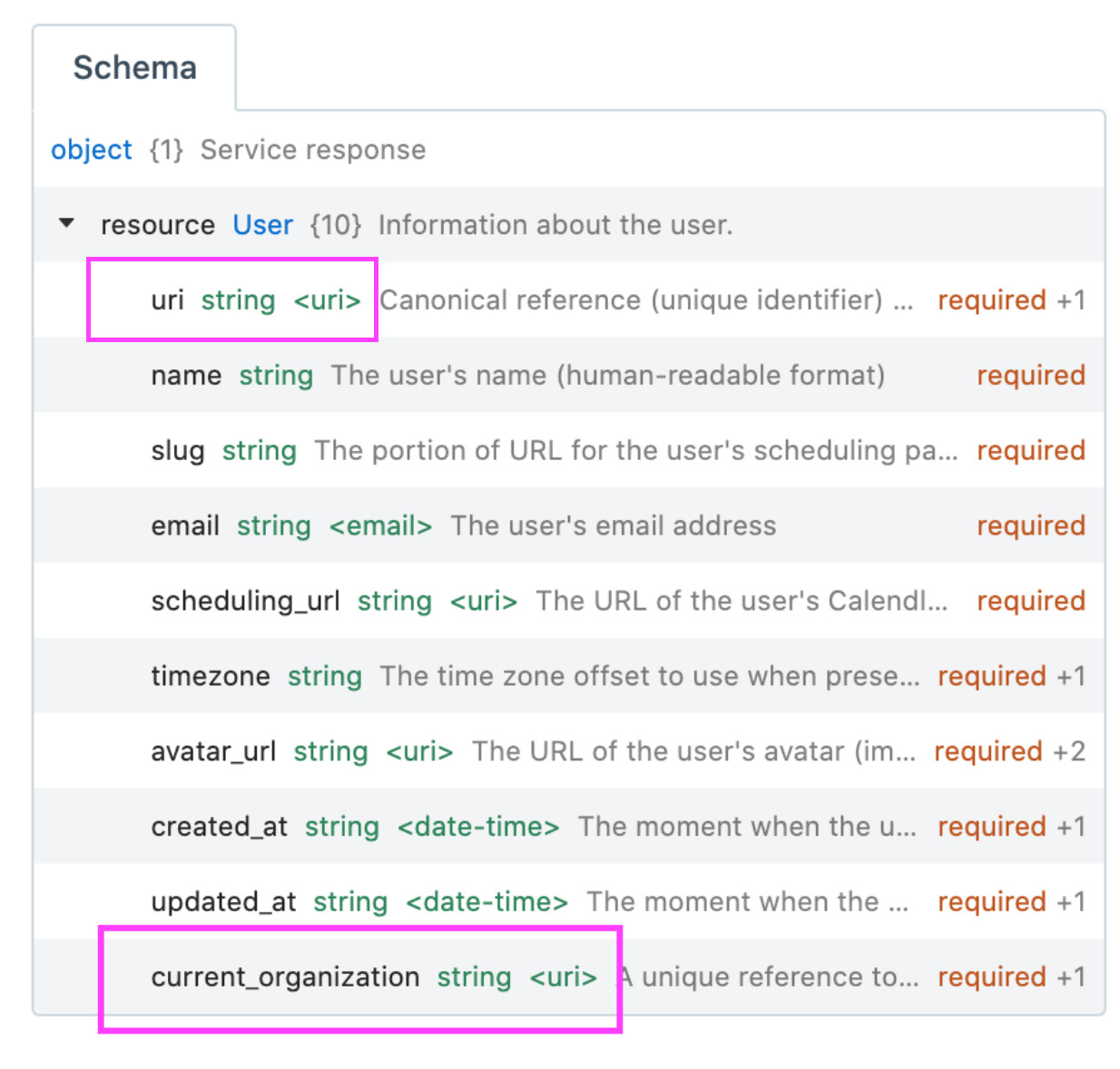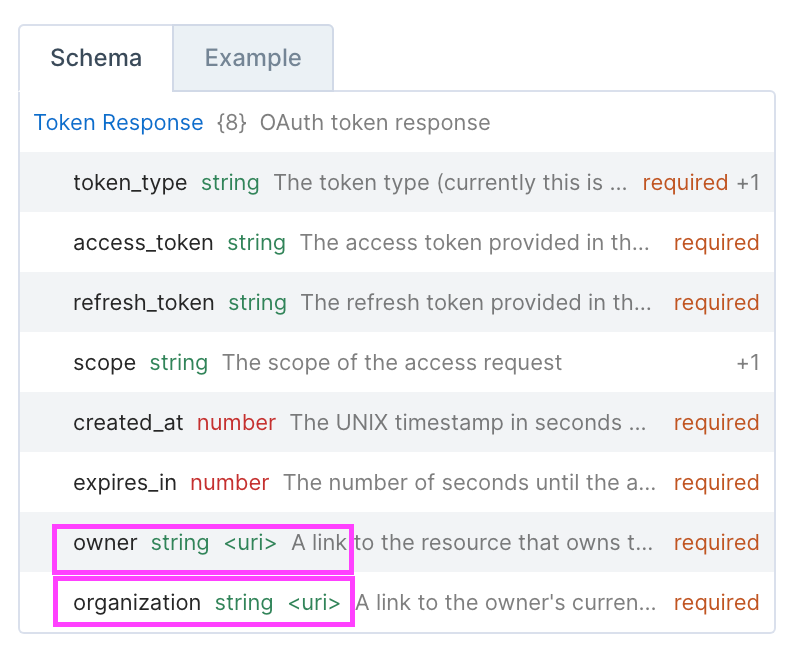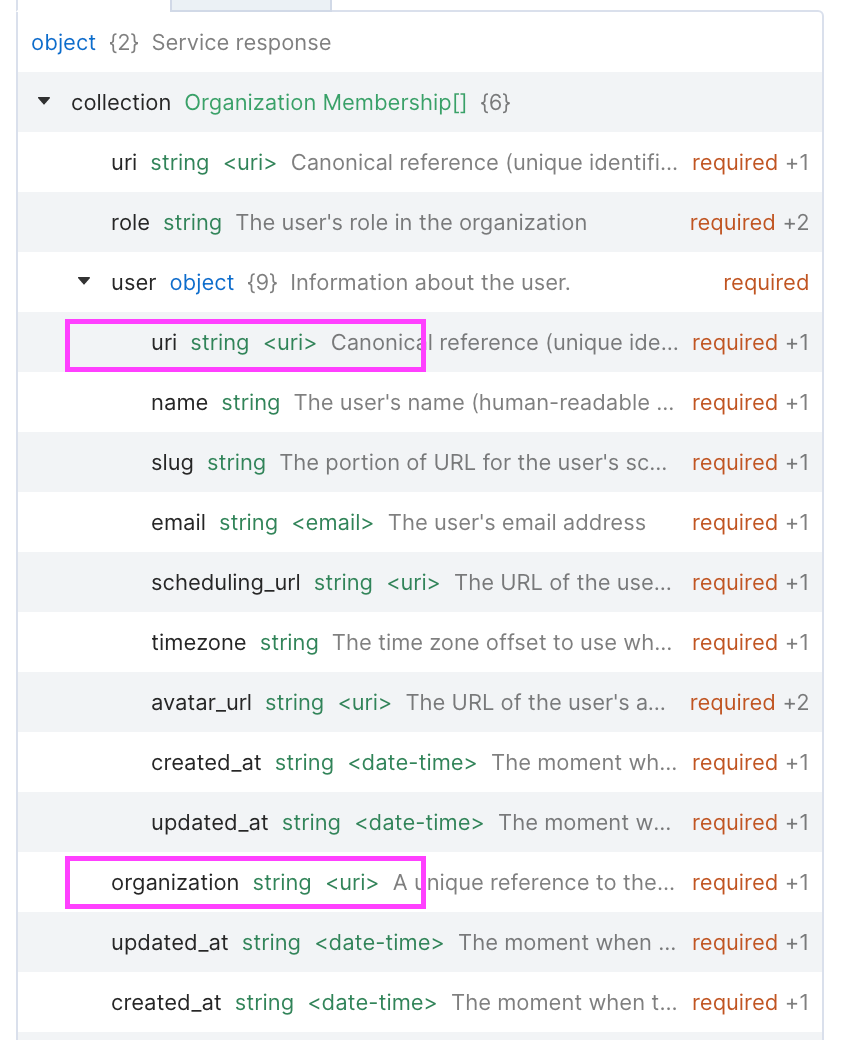- Getting started
- API Use Cases
- Automate your process
- Embed Calendly
- Report on scheduled events
- Share meeting links
- View availability data
- Schedule Events with AI Agents
- API Recipes
- Displaying the Availability of Your Users
- Create a Webhook Subscription
- Webhook Payloads for rescheduled events
- Migrate from API v1 to v2
- Frequently Asked Questions
How to find the organization or user URI
Make a GET request to /users/me
To get the user URI, call GET /user/me to get the organization and user URI. Replace the {access_token} value with your OAuth or personal access token.
Example request:
curl --request GET \
--url https://api.calendly.com/users/me \
--header 'authorization: Bearer {access_token}'
Review the response payload (for personal access tokens)
If you authenticated with your personal access token, the payload will contain information about you and your Calendly account. Note the values of the resources in the payload:
the user URI is given as the value of
urithe organization URI is given as the value of
current_organization

Review the response payload (for OAuth)
If you authenticated with OAuth, the organization and user URI are referenced differently in the access token’s payload:
the user URI is given as the value of the
ownerkeythe organization URI is given as the value of the
organizationkey

Find the organization or user URI for all Calendly members in your organization
If you already have a specific user or organization URI, use it to make a GET request to /organization_memberships endpoint which will return information about a user’s membership to an organization, or a collection of all Calendly members in the organization, respectively.
Review the response payload (for personal access tokens)
Depending on which URI you’ve used, the payload will contain information about your membership status to an organization, or information about all Calendly members in the organization. Note the values of the resources in the payload:
the user URI is given as the value of
urithe organization URI is given as the value of
organization
In the user object of each collection, Calendly returns the user's organization URI and user URI as uri.

What's next
How to get scheduling page links for any team member across the organization (admins only)
Track and report on all scheduled events across the organization (admins only)